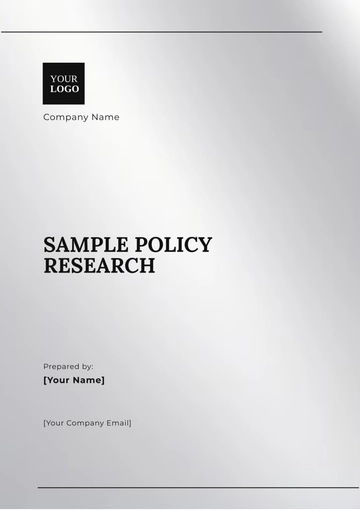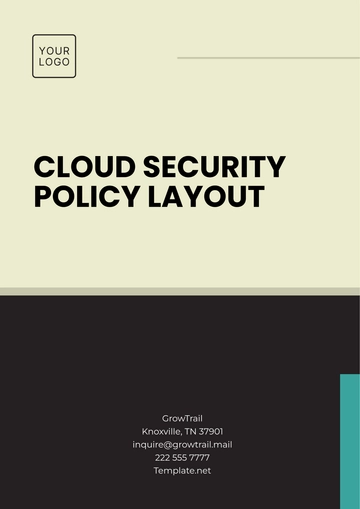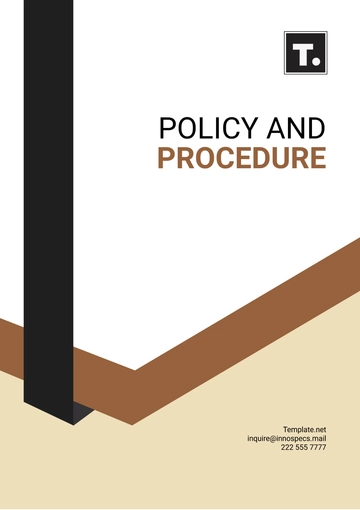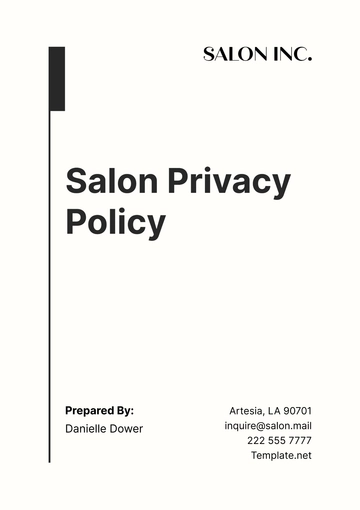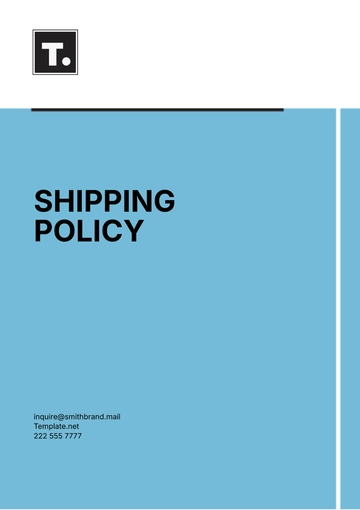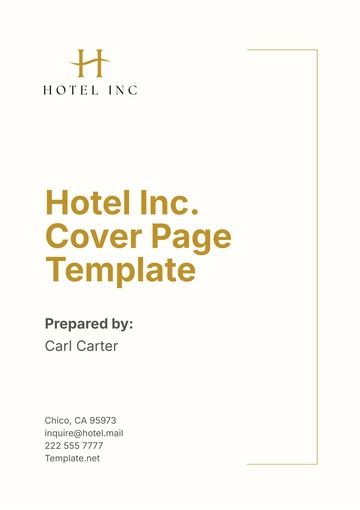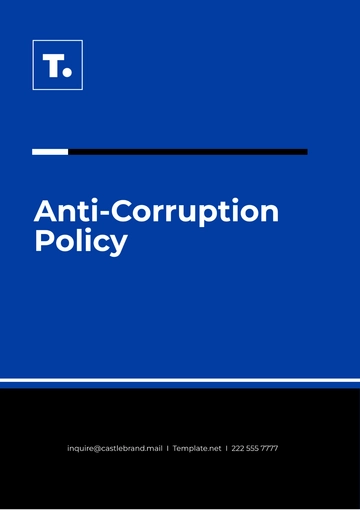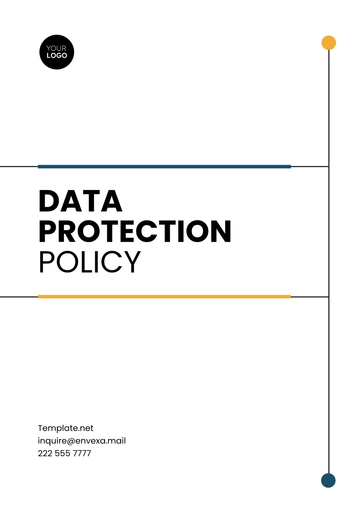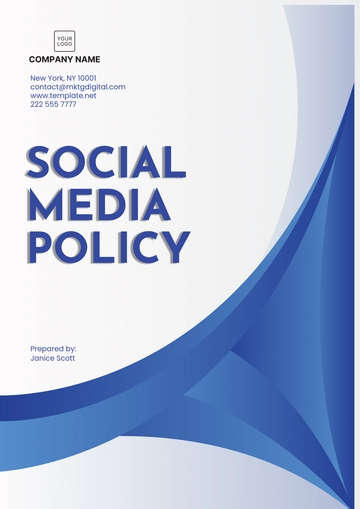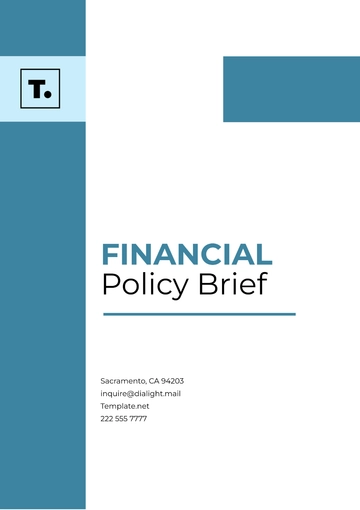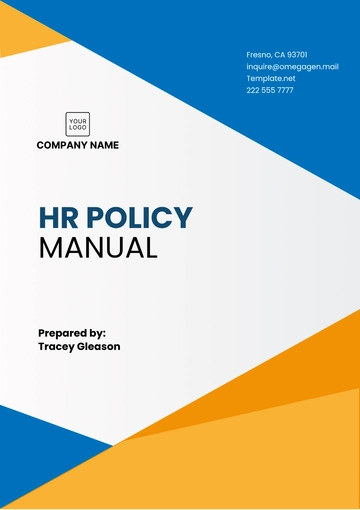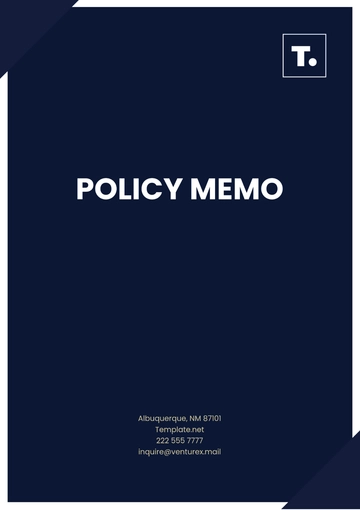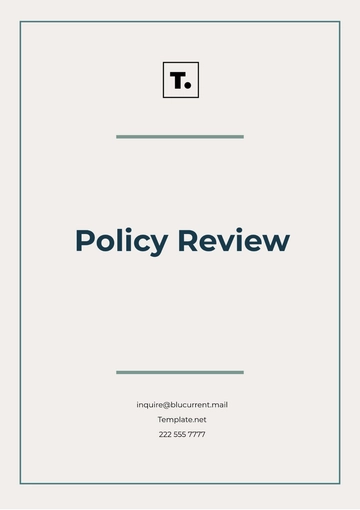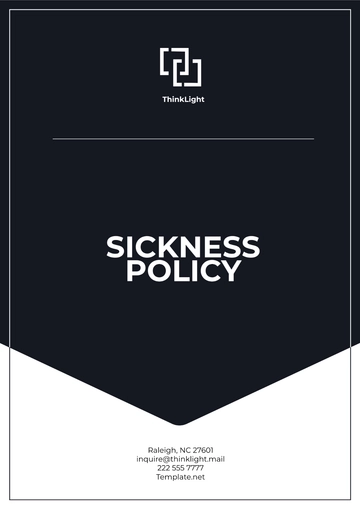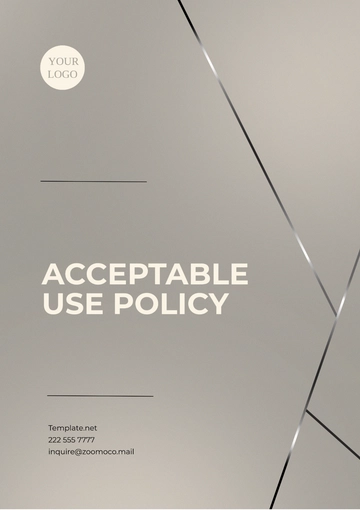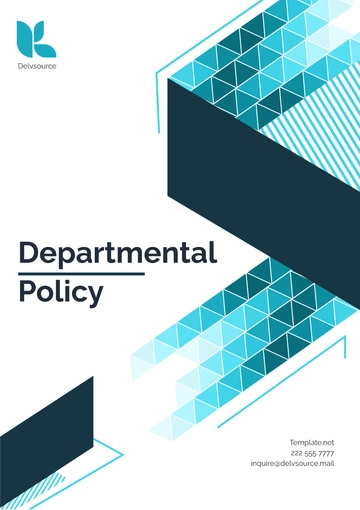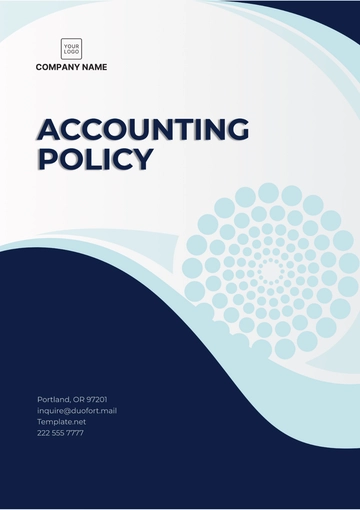Free Hotel Room Damage Policy
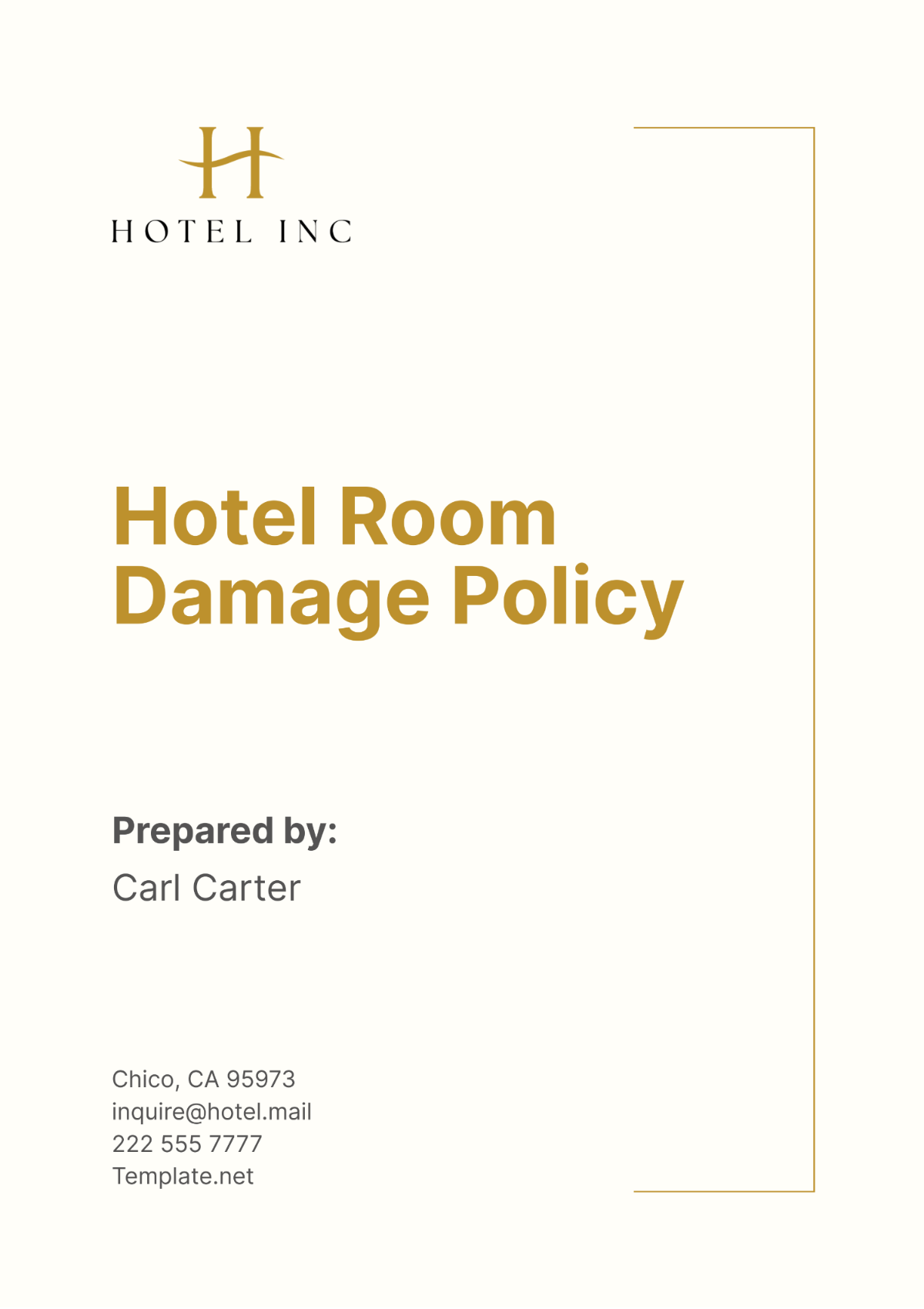
I. Introduction
The purpose of our Hotel Room Damage Policy is to ensure the maintenance of our high standards of accommodation and to outline the procedures and responsibilities related to room damage. This policy applies to all guests and is intended to provide clarity on how damages are assessed, reported, and charged. Our goal is to maintain a safe, comfortable, and well-maintained environment for all guests.
II. Definition of Room Damage
Room damage refers to any physical harm or alteration to the hotel's property caused by guests, either intentionally or unintentionally. This includes, but is not limited to, damage to furniture, fixtures, fittings, equipment, and decor within the guest rooms.
Type | Example |
|---|---|
Physical Damage | Broken furniture, damaged walls |
Stains and Spills | Stains on carpets, upholstery, or bedding |
Unauthorized Changes | Painting walls, altering fixtures |
Negligence | Burns, water damage, excessive dirt |
III. Damage Assessment
A. Inspection Procedures: After a guest checks out, our housekeeping and maintenance teams conduct a thorough inspection of the room to identify any damage. This process ensures that all potential issues are documented and addressed promptly.
B. Responsibility for Damage: The guest who booked the room is held responsible for any damage incurred during their stay. This includes damage caused by themselves, their guests, or pets.
C. Documentation and Evidence: Any identified damage is documented through detailed reports and photographs. This evidence is used to support the assessment of charges and to communicate the issue to the guest.
D. Reporting to Management: All findings of damage are reported to hotel management immediately. Management reviews the documentation and determines the appropriate course of action, including communication with the guest and assessment of charges.
IV. Notification Process
A. Guest Notification: If damage is identified, the guest will be notified as soon as possible, typically within 24 hours of checkout. Notification includes a description of the damage and the evidence collected.
B. Reporting Damages: Guests are encouraged to report any accidental damage to the front desk immediately. Prompt reporting can often mitigate the extent of the damage and reduce potential charges.
C. Timeframe for Notification: Guests will receive written notification of the damage assessment and any associated charges within 48 hours of checkout. This notification will include details on how to dispute the charges if necessary.
D. Communication Channels: Notifications and reports will be communicated through the guest's provided contact information, including email and phone. Follow-up communication will ensure that the guest is fully informed throughout the process.
V. Damage Charges
A. Determination of Charges: Charges for damages are determined based on the cost of repair or replacement, labor, and any loss of revenue if the room is taken out of service for repairs. The goal is to cover the expenses incurred due to the damage.
B. Charge Categories: Damages are categorized based on severity. Minor damages might include small stains or scuffs, while major damages could involve broken furniture or significant structural damage. Severe damages include extensive destruction requiring major repairs.
C. Charge Calculation: Charges are calculated based on the actual cost of repairs or replacement. This includes materials, labor, and any external services required to restore the room to its original condition.
D. Guest Payment Process: Guests will be informed of the total charges and the method of payment required. Charges will be applied to the guest's credit card on file. Guests will receive an itemized bill detailing the charges and the rationale behind them.
VI. Deposit and Security Hold
A. Security Deposit Requirement: All guests are required to provide a security deposit at the time of check-in. This deposit acts as a safeguard against any potential damages that may occur during the guest's stay.
B. Use of Security Deposits for Damages: In the event that room damage is identified, the security deposit will be used to cover the costs of repairs and replacements. Any remaining balance of the deposit will be refunded to the guest.
C. Refund of Security Deposits: If no damage is found upon inspection after check-out, the full security deposit will be refunded to the guest. The refund process will be initiated within 48 hours of check-out and may take up to 7 business days to reflect in the guest's account, depending on their bank's processing time.
D. Additional Charges: If the cost of damages exceeds the amount of the security deposit, the guest will be charged the additional amount. The guest will be notified of the total charges and provided with an itemized bill.
VII. Dispute Resolution
A. Process for Contesting Charges: Guests who wish to dispute any damage charges must submit a written request to our front desk or management team within 14 days of receiving the damage notification. The request should include any supporting evidence or explanations for the dispute.
B. Internal Review Process: Upon receiving a dispute, our management team will conduct an internal review, which includes re-evaluating the damage report and examining any additional evidence provided by the guest. This review process aims to ensure a fair and transparent assessment.
C. Final Decision and Appeals: After the internal review, the guest will be informed of the final decision regarding the dispute. If the guest is not satisfied with the outcome, they may request a further review by senior management. The decision of senior management will be final.
D. Communication of Resolution: The outcome of the dispute resolution process will be communicated to the guest in writing. This communication will include the final decision, any adjustments to charges, and instructions for payment if applicable.
VIII. Preventive Measures
A. Guest Guidelines: We provide guests with guidelines and information on how to use hotel facilities properly and responsibly. This includes instructions on operating in-room appliances, avoiding actions that may cause damage, and reporting issues promptly.
B. Hotel Maintenance Programs: Regular maintenance programs are conducted to ensure that all hotel facilities and rooms are in good condition. Preventive maintenance helps identify potential issues before they become significant problems.
C. Staff Training on Damage Prevention: Our staff is trained to identify and address potential hazards that could lead to room damage. This training includes proper handling of equipment, effective cleaning techniques, and prompt reporting of any issues.
D. Regular Inspections: Routine inspections are carried out in all rooms and common areas to identify and rectify any wear and tear or potential damage. These inspections help maintain high standards and prevent damage.
IX. Policy Updates and Revisions
A. Frequency of Review: Our Hotel Room Damage Policy is reviewed annually to ensure it remains current and effective. This review process involves assessing the effectiveness of the policy and making necessary adjustments based on feedback and operational experiences.
B. Notification of Changes to Guests: Any updates or revisions to the policy will be communicated to guests through our website and at the time of booking. Guests will also be informed of any significant changes upon check-in.
C. Guest Responsibility: It is the guest's responsibility to review the policy periodically for any changes. By staying with us, guests agree to the terms outlined in the most current version of the policy.
D. Continuous Improvement: We are committed to continuously improving our policies and procedures to enhance guest satisfaction and protect our property. Feedback from guests and staff is encouraged and considered in the policy review process.
- 100% Customizable, free editor
- Access 1 Million+ Templates, photo’s & graphics
- Download or share as a template
- Click and replace photos, graphics, text, backgrounds
- Resize, crop, AI write & more
- Access advanced editor
Protect your property with our editable and customizable Hotel Room Damage Policy Template from Template.net. Editable in our AI Editor tool, this template outlines clear procedures for assessing and handling room damages. Customize it to match your hotel's policies and ensure a transparent process for guests, enhancing your operational efficiency.
You may also like
- HR Policy
- Restaurant Policy
- Company Policy
- Accounting Policies and Procedures
- Website Policy
- Privacy Policy
- Safety Policy
- School Policy
- IT and Software Policy
- Law Firm Policy
- Construction Policy
- Interior Design Policy
- Travel Agency Policy
- Education Academic Policy
- Security Policy
- Real Estate Policy
- Expense Policy
- Software Policy
